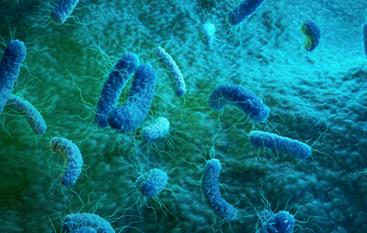Creative Biolabs provides the most useful microbial systems to produce recombinant protein therapeutics. Microbial systems have been used for the production of recombinant protein therapeutics including monoclonal antibodies for many years. With experience in antibody engineering and professional groups, Creative Biolabs can assist every client to develop microbial systems.

To develop cell lines for manufacturing of mAbs and other recombinant proteins, the following issues should be included: host cell lines, expression vectors and process parameters. Based on the principle, our pipeline of cell line development has been expanded. We select and engineer host cells to produce proteins with enhanced characteristics and robust process, during which, we perform gene and vector optimization helped by the optimization systems and various engineered vectors. In order to receive high quality cells, transfection and selection processes are considered including integration into chromosomal hot-spots.
To align with the type of biologics to be expressed, the expression characteristics, glycosylation requirements, etc., different host cell lines are chosen. Up to now, about 48% of biologics approved for manufacturing are produced in microbial systems including E.coli and Saccharomyces cerevisiae. Here what we mention about microbial systems refers to bacterial expression systems and yeast expression systems.
Bacterial expression systems, mainly famous for E.coli, which was used to produce human insulin, are straightforward to culture. They have fast growth rates and robust fermentation characteristics, facilitating achieve high yields. Additionally, the protein expression of bacterial system can be started through promoter induction via addition of IPTG or lactose. These advantages allow bacterial systems to have higher productivity, faster turnaround fewer contamination issues. Meanwhile, due to the absence of intracellular compartmentalization required and necessary enzymatic components, bacterial systems are generally suitable for the production of non-glycosylated proteins, such as cytokines, hormones, enzymes and some monoclonal antibodies. The biotherapeutics produced by bacterial systems that are approved in the United States and Europe include six classes: monoclonal antibodies, cytokines (tbo-filgrastim and Romiplostim), enzymes (asparaginase, glucarpidase, pegloticase, and collagenase), peptides (Metreleptin), therapeutic toxins (incobotulinumtoxin A) and vaccines (meningitis vaccine, pneumococcal vaccine). And the host cells are mainly E.coli, Erwinia chrysanthemi and Clostridium histolyticum.
Compared with bacterial expression systems, yeast expression systems combine the advantages of prokaryotic and eukaryotic cells. They also possess straightforward production scalability to grow rapidly and achieve high-protein yields. As the single celled eukaryotic fungal organisms, yeasts can be used to generate the proteins which are not produced well in bacterial systems because of the need of glycosylation or problems dealing with folding. In summary, the advantages of yeast expression systems include the following items: rapid growth, high yield, stable production strains, durability, cost effective, high density growth, high productivity, suitability for production of isotopically-labeled protein, rapid growth in chemically defined media, product processing similar to mammalian cells, can handle S-S rich proteins, can assist protein folding and glycosylate proteins. Various yeast species have been utilized to express recombinant proteins and among which S. cerevisiae and P. pastoris are the most utilized yeast strains of yeast systems. Enzymes (e.g. Ocriplasmin), peptides (e.g. Albiglutide and Liraglutide), and clotting factors (e.g. Catridecacog) have been produced successfully in yeast systems. Moreover, the glycolengineered Pichia pastoris offers an alternative platform to mammalian cell expression. Besides bacterial and yeast, microbial systems also include filamentous fungi and unicellular algae.
Creative Biolabs provides the following microbial systems for various proteins expression:
-
➢ Bacterial systems: E.coli; Bacillus, Lactoccocus lactis, etc.
-
➢ Yeast systems: Saccharomyces cerevisiae, Pichia pastoris, H. polymorpha , etc.
-
➢ Filamentous fungi
-
➢ Unicellular algae
References:
-
Jennifer, Dumont.; et al. Human cell lines for biopharmaceuticalmanufacturing: history, status, and futureperspectives. Crit Rev Biotechnol. 2015 Sep 18:1-13.
-
Demain, A.L.; Vaishnav, P. Production of recombinant proteins by microbes and higher organisms. Biotechnology advances. 2009, 27(3): 297-306.
To discuss your Microbial Cell Lines demands or to request a proposal, please contact us.
For Research Use Only. Not For Clinical Use.



